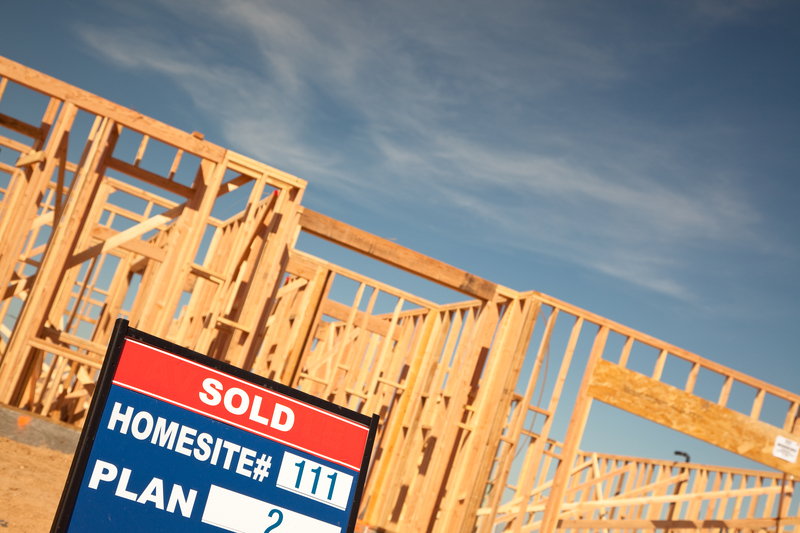So you’ve decided that you want to move into a brand new home, now you need to explore your options for financing new construction. If you are purchasing new construction from a builder, you will apply for a traditional mortgage. However, if you are looking to fund a custom build, you will need a construction loan. Let’s take a closer look at this important distinction.
Home Loans for New Construction
The types of loans available to purchase new construction are similar to resale home loan options. There are 15 and 30 year terms, fixed-rate and adjustable-rate, and FHA, VA, and conventional loan products to choose from. While the builder is likely to provide incentives if you use their preferred lender, you should always shop around for a mortgage. Let’s say the builder is offering a $10,000 credit as an incentive for using their preferred lender. That sounds pretty enticing, but can easily be offset by a high loan origination fee or interest rate. If you find better terms through another lender, go back to the preferred lender to see if they will beat or match the rate and fees.
Once you decide on a loan product and lender, you will need to pay close attention to the timeline. The lender will require a certificate of occupancy before you can close. If you apply too early or if the builder runs into construction delays, your interest rate lock could expire. Generally, a lender can lock in your interest rate for 30 to 60 days. After that, you may have to pay a fee to extend your rate lock or you could be required to reapply altogether. Good communication with the builder and your loan officer is essential when applying for a mortgage to purchase new construction.

Construction Loans
If you are looking to finance a custom home build, you will need a construction loan to cover the land, building materials, permits, and labor. Typically, lenders require at least 20% down and charge higher interest rates than they do with traditional home loans because they take on a higher risk of default without a completed home to use as collateral. A construction loan is a short-term loan. You will need to provide the lender with a realistic building schedule and budget in order to qualify. The lender pays the contractor in installments at predetermined milestones throughout the project.
Once construction is completed, the loan is either paid in full or is transitioned to a traditional mortgage. If you opt for a construction-to-permanent loan, your construction loan will automatically transition to a mortgage. So you will only have to pay closing costs once. Construction-only loans will require you to pay the loan in full or apply for a mortgage once a certificate of occupancy is issued. Going this route will require you to pay closing costs twice. If you plan on paying the construction loan in full, be sure you have the financial reserves to cover unexpected building expenses.
Conclusion
As you can see, you have two major options for financing new construction. Obtaining a mortgage for new construction and financing a custom build present two very different scenarios. If you prefer to leave the details to the experts, purchasing from a builder is a good choice. However, if you want more control with a custom home build, you will need to apply for a construction loan. Construction loans pose a greater risk to the lender. Therefore, the credit score, loan-to-value ratio, and down payment requirements are more stringent. If you do qualify for a construction loan, review your budget carefully so you don’t have to pay closing costs twice.


